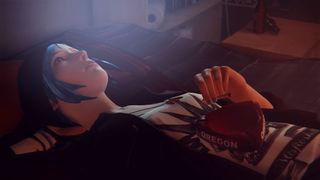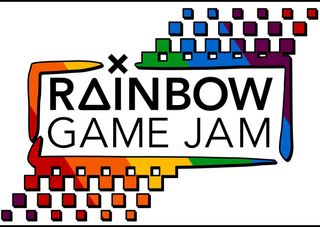Tell us about yourself - What's your role at TKG?
I’m Kirsty, Lead Programmer here at Third Kind Games. I’m usually fueled up by an amount of caffeine and I work alongside the team to help them deliver our best work for our client projects.
Who is your favourite LGBTQI+ video game character?
I do have a good list to choose from but on the top spot would be Chloe from the Life Is Strange series by Don’t Nod. I started playing the game because I was interested in the premise of the story. I was then drawn to Chloe as a character after getting introduced to her and uncovering her past that Max (main character that the player controls) has missed out while being out of town.
What makes them so special?
Chloe has the air of doing whatever she wants and doesn’t really care for others opinions of her - this made her, in my eyes, instantly a cool and likeable character.
I believe I got hit with what usually happens when we play video games - we can sometimes project our idea of our ideal selves onto the character we play as. What surprises me more is that I personally will encounter that more when it’s an RPG that you’re creating your own character for rather than a fully designed character in a game.
Why are they a great LGBTQI+ character?
I really liked that it wasn’t made a big deal of that Chloe was dating a woman and has had previous relationships with men. It’s never confirmed in the game what Chloe’s sexual preferences are either which added to the point of “Why does it matter”. I really liked that because I sometimes find LGBTQI+ character are put on pedestals as a means of amplifying inclusivity in the games we play.
Because of the ambiguity on her sexual preferences, I think this is where the fan base could have been filling in the gaps (whether driven by personal projection or just the interpretation of the character) that Chloe was bisexual to some people but a lesbian for others.
Why do you think LGBTQI+ characters in games are important?
For so many different reasons! My main ones are as follows : They can help promote a world where being LGBTQI+ is totally okay and shouldn’t be seen as a threat. Even in 2023 and in the UK, we’re faced with people discriminating against the LGBTQI+ community and that doesn’t make us feel like we’re in a safe space to be ourselves. It can leave people fearing that they’re going to be verbally or physically abused just for being their true selves.
It can help encourage empathy and understanding if you play games that tell stories that you may not be experiencing yourself (shoutout to another Dont Nod game, Tell Me Why, for helping me understand the struggles some trans folks may experience). Video games are such an immersive media when done right that we ,as players, can be soared up into a really good story that hopefully, leaves a bit of an impact on us as we go about our day-to-day lives.
This may then lead to allowing folks to better understand themselves and their own identity. I picked Chloe and Life is Strange because I played it around the time I was still trying to find a good label for how I felt. Watching Chloe in game just be totally fine with having relations with men and women gave me a lightbulb moment and made me realise “Oh, this is is totally fine and normal.”
Tell me about the Rainbow Jam!
To match Connor’s point in his blog post : queer stories are best told from queer developers which is why I am super proud to be running Rainbow Game Jam as an outlet for so many queer developers. We aim to uplift and amplify all these amazing creatives by getting them together for a two week game jam focusing around a queer related theme to inspire them.

